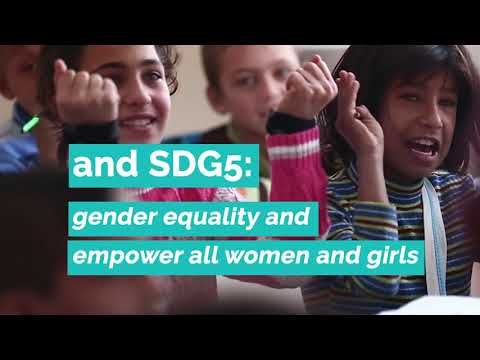Putting gender equality at the heart of education sector planning
A new policy brief
As ministers convene for the twelfth Commonwealth Women’s Affairs Ministers Meeting in Nairobi, a new policy note - Gender-Responsive Education Sector Planning (GRESP) – a pathway to gender equality in education - is being launched today through the Platform for Girls’ Education as part of the Leave No Girl Behind Campaign. The publication sets out the vital role GRESP can play in strengthening education systems for gender outcomes and thus driving progress for Commonwealth commitments to gender equality and the 2030 Agenda for Sustainable Development as a whole.
As ministers convene for the twelfth Commonwealth Women’s Affairs Ministers Meeting (12WAMM) in Nairobi, a new policy note - Gender-Responsive Education Sector Planning – a pathway to gender equality in education - is being launched today through the Platform for Girls’ Education as part of the Leave No Girl Behind Campaign.
Under the theme ‘From Commitment to Action: Accelerating Gender Equality and Women’s Empowerment for Sustainable Development’, 12WAMM brings together ministers, senior officials, civil society, private sector and partner agencies to explore and agree upon workable strategies to advance gender equality across the Commonwealth. The launch of the new policy note highlights the critical role of education in advancing this agenda, setting out the means through which gender-responsive education sector planning (GRESP) can strengthen education systems for gender outcomes and thus play a vital role in progressing Commonwealth commitments and the entire 2030 Agenda for Sustainable Development.
GRESP: a whole-system approach to gender equality in education
Advancing gender equality in education is a proven way of improving the health and wealth of whole communities and countries. The Gender-Responsive Education Sector Planning policy note provides an overview of a whole-system approach for putting gender at the heart of education – ensuring the management, administration, budgeting, monitoring, teacher training, pedagogy and all aspects of education are gender-responsive by design. By bringing a gender lens to education sector planning, national stakeholders can identify gender barriers and take action to address them through strategies and policies, implemented with the needed budget and technical oversight.
Highlighting theGuidance for Developing Gender-Responsive Education Sector Plans publication produced by GPE and UNGEI, the policy note outlines the key elements of GRESP and points to opportunities for further engagement through national and regional workshops led by GPE, UNGEI and other partners in order to enhance delegates’ understanding of gender analysis and its role in education planning. To date, over 200 delegates representing government ministries, civil society and development partners from 26 countries across Africa and Asia have participated in GRESP workshops and benefited from an exchange of knowledge, resources and experiences around gender and education.
A commitment to Leave No Girl Behind
Together with the Guidance tool, the GRESP workshops are a key facet of the GPE Gender Equality Strategy, UNGEI’s Strategic Directions and a vehicle for delivering on the shared commitment of Commonwealth governments, G7 leaders and all partners to advance girls’ education and gender equality.
Championed by the Platform for Girls’ Education, a group of 12 influential figures from across the Commonwealth working to drive forward political momentum for girls’ education, the GRESP policy note is published as part of the UK-led Leave No Girl Behind Campaign. The campaign promotes advocacy, action and accountability to break barriers so that all girls can access the 12 years of quality education they need to succeed by 2030.


